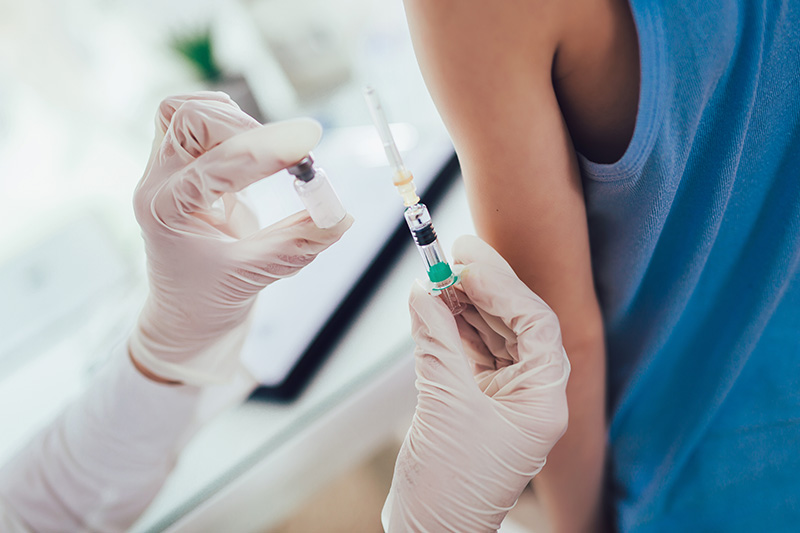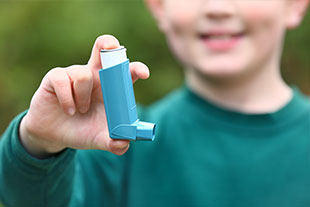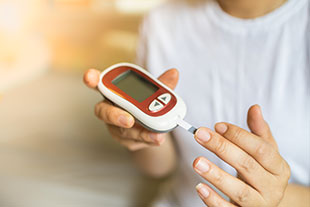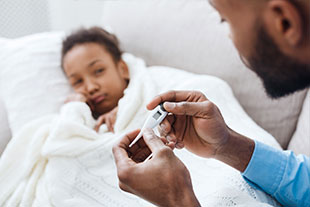Vaccines
Vaccines
We recommend all children be vaccinated according to the schedule published by the US Department of Health and Human Services, Center for Disease Control and Prevention. However, if as a parent you do not wish to have your children vaccinated, we understand that you have a choice and will still be happy to serve as your children’s medical doctor.

Vaccine Information
- Exemptions
- Vaccine Schedule – Birth to 18 Years
- Vaccine Schedule for Adults
- Adenovirus
- Anthrax
- DTaP
- Hepatitis A
- Hepatitis B
- Hib (Haemophilus influenzae type b)
- HPV (Gardasil)
- Influenza – Inactivated
- Influenza – Live, Attenuated
- JE-Ixiaro
- MMR
- MMRV
- Meningococcal
- PCV13
- PPV23
- Polio
- Rabies
- Rotavirus
- Shingles
- Smallpox
- Td
- Tdap
- Typhoid Fever
- Varicella (Chickenpox)
- Yellow Fever
- What if there is a moderate or severe reaction?
Any vaccine can cause side effects. For the most part these are minor (for example, a sore arm or low-grade fever) and go away within a few days. Listed below are vaccines licensed in the United States and side effects that have been associated with each of them. This information is copied directly from CDC’s Vaccine Information Statements, which in turn are derived from the Advisory Committee on Immunization Practices (ACIP) recommendations for each vaccine.
Remember, vaccines are continually monitored for safety, and like any medication, vaccines can cause side effects. However, a decision not to immunize a child also involves risk and could put the child and others who come into contact with him or her at risk of contracting a potentially deadly disease.
Your child does NOT have to be vaccinated to attend school. There is no federal law mandating vaccine exemptions. It is left up to individual states. Every state has at least one kind. Some have two or even three. All 50 states have a medical exemption. All states except Mississippi and West Virginia have religious exemptions. And 18 have philosophical exemptions including Texas. In Texas, parents who want a philosophical exemption must sign an Affidavit Request for Exemption from Immunization for Reasons of Conscience. The form can be mailed, faxed, hand delivered, or filled in online.
To find out which exemptions are available in Texas and how to go about getting one, visit the National Vaccine Information Center website. Click on Texas on the map. You will find a page of links that contain specific requirements and, in most cases, forms for each type. You can also Google “Texas health department” for information.
Parent-Friendly Schedule for Children, Birth through 18 Years
(¿Necesita una versión en español?)
Adult Schedule by Vaccine and Age Group for Health Care Providers
Adenovirus vaccine
Adenovirus vaccine is only available for United States military personnel. There is currently no adenovirus vaccine available to the general public.
Adenovirus vaccine contains live adenovirus Type 4 and Type 7. It will prevent most illness caused by these two virus types.
The vaccine comes as two tablets, taken orally (by mouth) at the same time. The tablets should be swallowed whole, not chewed or crushed.
The vaccine is approved for military personnel 17 through 50 years of age. It is recommended by the Department of Defense for military recruits entering basic training. It may also be recommended for other military personnel at high risk for adenovirus infection.
Adenovirus vaccine may be given at the same time as other vaccines.
Talk with your health care provider
Tell your vaccine provider if the person getting the vaccine:
- Has had an allergic reaction after a previous dose of adenovirus vaccine, or has any severe, life-threatening allergies.
- Has a weakened immune system.
- Is younger than 17 or older than 50 years.
- Is pregnant or nursing, or planning to become pregnant.
- Is unable to swallow the vaccine tablets whole without chewing them.
- Is currently experiencing vomiting or diarrhea.
In some cases, your health care provider may decide to postpone adenovirus vaccination to a future visit.
People with minor illnesses, such as a cold, may be vaccinated. People who are moderately or severely ill should usually wait until they recover before getting adenovirus vaccine.
Virus from the vaccine can be shed in the stool for up to 28 days after vaccination. To minimize the risk of spreading vaccine virus to other people during this period, observe proper personal hygiene, such as frequent hand washing, especially following bowel movements. This is especially important if you have close contact with children 7 years of age and younger, with anyone having a weakened immune system, or with pregnant women.
Your health care provider can give you more information.
Risks of a vaccine reaction
- Headache, upper respiratory tract infection, stuffy nose, sore throat, abdominal pain, cough, nausea, diarrhea, fever or joint pain can happen after adenovirus vaccine.
- More serious problems including blood in the urine or stool, pneumonia, or inflammation of the stomach or intestines occur rarely after adenovirus vaccination.
As with any medicine, there is a very remote chance of a vaccine causing a severe allergic reaction, other serious injury, or death.
Vaccine Information Statement
Adenovirus Vaccine (1/8/20)
Department of Health and Human Services
Centers for Disease Control and Prevention
Anthrax vaccine
Anthrax vaccine is approved by the Food and Drug Administration (FDA) and recommended for adults 18 through 65 years of age who are at risk of exposure to anthrax bacteria, including:
- Certain laboratory workers who work with Bacillus anthracis
- People who handle potentially infected animals or their carcasses
- Some military personnel (determined by the Department of Defense)
- Some emergency and other responders whose response activities might lead to exposure
These people should get 3 doses of anthrax vaccine, followed by booster doses for ongoing protection.
Anthrax vaccine is also recommended for unvaccinated people of all ages who have been exposed to anthrax. These people should get 3 doses of anthrax vaccine together with recommended antibiotic drugs.
Anthrax vaccine has not been studied or used in children less than 18 years of age. Because its use in exposed children is not approved by FDA, it must be used under an expanded access Investigational New Drug (IND) program and requires informed consent from a parent or legal guardian.
Talk with your health care provider
Tell your vaccine provider if the person getting the vaccine:
- Has had an allergic reaction after a previous dose of anthrax vaccine, or has any severe, life-threatening allergies.
- Is pregnant or thinks she might be pregnant.
- Has a weakened immune system.
- Has a history of anthrax disease.
In some cases, your health care provider may decide to postpone anthrax vaccination to a future visit.
People with minor illnesses, such as a cold, may be vaccinated. People who are moderately or severely ill should usually wait until they recover before getting anthrax vaccine.
If you are receiving the vaccine because you have been exposed to anthrax, tell your health care provider if you are not feeling well. You might need immediate medical care.
Your health care provider can give you more information.
Risks of a vaccine reaction
After getting a shot of anthrax vaccine, you may have:
- Tenderness, redness, itching, or a lump or bruise where the shot is given
- Muscle aches or short-term trouble moving your arm
- Headaches or fatigue
People sometimes faint after medical procedures, including vaccination. Tell your provider if you feel dizzy or have vision changes or ringing in the ears.
As with any medicine, there is a very remote chance of a vaccine causing a severe allergic reaction, other serious injury, or death.
Vaccine Information Statement
Anthrax Vaccine (1/8/20)
Department of Health and Human Services
Centers for Disease Control and Prevention
DTaP vaccine
DTaP is only for children younger than 7 years old. Different vaccines against tetanus, diphtheria, and pertussis (Tdap and Td) are available for older children, adolescents, and adults.
It is recommended that children receive 5 doses of DTaP, usually at the following ages:
- 2 months
- 4 months
- 6 months
- 15–18 months
- 4–6 years
DTaP may be given as a stand-alone vaccine, or as part of a combination vaccine (a type of vaccine that combines more than one vaccine together into one shot).
DTaP may be given at the same time as other vaccines.
Talk with your health care provider
Tell your vaccine provider if the person getting the vaccine:
- Has had an allergic reaction after a previous dose of any vaccine that protects against tetanus, diphtheria, or pertussis, or has any severe, life-threatening allergies.
- Has had a coma, decreased level of consciousness, or prolonged seizures within 7 days after a previous dose of any pertussis vaccine (DTP or DTaP).
- Has seizures or another nervous system problem.
- Has ever had Guillain-Barré Syndrome (also called GBS).
- Has had severe pain or swelling after a previous dose of any vaccine that protects against tetanus or diphtheria.
In some cases, your child’s health care provider may decide to postpone DTaP vaccination to a future visit.
Children with minor illnesses, such as a cold, may be vaccinated. Children who are moderately or severely ill should usually wait until they recover before getting DTaP.
Your child’s health care provider can give you more information.
Risks of a vaccine reaction
- Soreness or swelling where the shot was given, fever, fussiness, feeling tired, loss of appetite, and vomiting sometimes happen after DTaP vaccination.
- More serious reactions, such as seizures, non-stop crying for 3 hours or more, or high fever (over 105°F) after DTaP vaccination happen much less often. Rarely, the vaccine is followed by swelling of the entire arm or leg, especially in older children when they receive their fourth or fifth dose.
- Very rarely, long-term seizures, coma, lowered consciousness, or permanent brain damage may happen after DTaP vaccination.
As with any medicine, there is a very remote chance of a vaccine causing a severe allergic reaction, other serious injury, or death.
Vaccine Information Statement (Interim)DTaP (Diphtheria, Tetanus, Pertussis) Vaccine
(4/1/2020)
42 U.S.C. § 300aa-26
Department of Health and Human Services
Centers for Disease Control and Prevention
Hepatitis A vaccine
Hepatitis A vaccine is an inactivated (killed) vaccine. You will need 2 doses for long-lasting protection. These doses should be given at least 6 months apart.
Children are routinely vaccinated between their first and second birthdays (12 through 23 months of age). Older children and adolescents can get the vaccine after 23 months. Adults who have not been vaccinated previously and want to be protected against hepatitis A can also get the vaccine.
You should get hepatitis A vaccine if you:
- are traveling to countries where hepatitis A is common,
- are a man who has sex with other men,
- use illegal drugs,
- have a chronic liver disease such as hepatitis B or hepatitis C,
- are being treated with clotting-factor concentrates,
- work with hepatitis A-infected animals or in a hepatitis A research laboratory, or
- expect to have close personal contact with an international adoptee from a country where hepatitis A is common
Ask your healthcare provider if you want more information about any of these groups.
There are no known risks to getting hepatitis A vaccine at the same time as other vaccines.
Some people should not get this vaccine
Tell the person who is giving you the vaccine:
- If you have any severe, life-threatening allergies.
If you ever had a life-threatening allergic reaction after a dose of hepatitis A vaccine, or have a severe allergy to any part of this vaccine, you may be advised not to get vaccinated. Ask your health care provider if you want information about vaccine components. - If you are not feeling well.
If you have a mild illness, such as a cold, you can probably get the vaccine today. If you are moderately or severely ill, you should probably wait until you recover. Your doctor can advise you.
Risks of a vaccine reaction
With any medicine, including vaccines, there is a chance of side effects. These are usually mild and go away on their own, but serious reactions are also possible.
Most people who get hepatitis A vaccine do not have any problems with it.
Minor problems following hepatitis A vaccine include:
- soreness or redness where the shot was given
- low-grade fever
- headache
- tiredness
If these problems occur, they usually begin soon after the shot and last 1 or 2 days.
Your doctor can tell you more about these reactions.
Other problems that could happen after this vaccine:
- People sometimes faint after a medical procedure, including vaccination. Sitting or lying down for about 15 minutes can help prevent fainting, and injuries caused by a fall. Tell your provider if you feel dizzy, or have vision changes or ringing in the ears.
- Some people get shoulder pain that can be more severe and longer lasting than the more routine soreness that can follow injections. This happens very rarely.
- Any medication can cause a severe allergic reaction. Such reactions from a vaccine are very rare, estimated at about 1 in a million doses, and would happen within a few minutes to a few hours after the vaccination.
As with any medicine, there is a very remote chance of a vaccine causing a serious injury or death.
Vaccine Information Statement
Hepatitis A Vaccine (7/20/2016)
42 U.S.C. § 300aa-26
Hepatitis B vaccine
Hepatitis B vaccine is usually given as 2, 3, or 4 shots.
Infants should get their first dose of hepatitis B vaccine at birth and will usually complete the series at 6 months of age (sometimes it will take longer than 6 months to complete the series).
Children and adolescents younger than 19 years of age who have not yet gotten the vaccine should also be vaccinated.
Hepatitis B vaccine is also recommended for certain unvaccinated adults:
- People whose sex partners have hepatitis B
- Sexually active persons who are not in a long-term monogamous relationship
- Persons seeking evaluation or treatment for a sexually transmitted disease
- Men who have sexual contact with other men
- People who share needles, syringes, or other drug-injection equipment
- People who have household contact with someone infected with the hepatitis B virus
- Health care and public safety workers at risk for exposure to blood or body fluids
- Residents and staff of facilities for developmentally disabled persons
- Persons in correctional facilities
- Victims of sexual assault or abuse
- Travelers to regions with increased rates of hepatitis B
- People with chronic liver disease, kidney disease, HIV infection, infection with hepatitis C, or diabetes
- Anyone who wants to be protected from hepatitis B
Hepatitis B vaccine may be given at the same time as other vaccines.
Talk with your health care provider
Tell your vaccine provider if the person getting the vaccine:
- Has had an allergic reaction after a previous dose of hepatitis B vaccine, or has any severe, life-threatening allergies.
In some cases, your health care provider may decide to postpone hepatitis B vaccination to a future visit.
People with minor illnesses, such as a cold, may be vaccinated. People who are moderately or severely ill should usually wait until they recover before getting hepatitis B vaccine.
Your health care provider can give you more information.
Risks of a vaccine reaction
- Soreness where the shot is given or fever can happen after hepatitis B vaccine.
People sometimes faint after medical procedures, including vaccination. Tell your provider if you feel dizzy or have vision changes or ringing in the ears.
As with any medicine, there is a very remote chance of a vaccine causing a severe allergic reaction, other serious injury, or death.
Vaccine Information Statement (Interim)
Hepatitis B Vaccine (8/15/19)
42 U.S.C. §300aa-26
Department of Health and Human Services
Centers for Disease Control and Prevention
Hib vaccine
Hib vaccine is usually given as 3 or 4 doses (depending on brand). Hib vaccine may be given as a stand-alone vaccine, or as part of a combination vaccine (a type of vaccine that combines more than one vaccine together into one shot).
Infants will usually get their first dose of Hib vaccine at 2 months of age, and will usually complete the series at 12-15 months of age.
Children between 12-15 months and 5 years of age who have not previously been completely vaccinated against Hib may need 1 or more doses of Hib vaccine.
Children over 5 years old and adults usually do not receive Hib vaccine, but it might be recommended for older children or adults with asplenia or sickle cell disease, before surgery to remove the spleen, or following a bone marrow transplant. Hib vaccine may also be recommended for people 5 to 18 years old with HIV.
Hib vaccine may be given at the same time as other vaccines.
Talk with your health care provider
Tell your vaccine provider if the person getting the vaccine:
- Has had an allergic reaction after a previous dose of Hib vaccine, or has any severe, life-threatening allergies.
In some cases, your health care provider may decide to postpone Hib vaccination to a future visit.
People with minor illnesses, such as a cold, may be vaccinated. People who are moderately or severely ill should usually wait until they recover before getting Hib vaccine.
Your health care provider can give you more information.
Risks of a vaccine reaction
- Redness, warmth, and swelling where shot is given, and fever can happen after Hib vaccine.
People sometimes faint after medical procedures, including vaccination. Tell your provider if you feel dizzy or have vision changes or ringing in the ears.
As with any medicine, there is a very remote chance of a vaccine causing a severe allergic reaction, other serious injury, or death.
Vaccine Information Statement (Interim)
Hib Vaccine (10/30/19)
42 U.S.C. § 300aa-26
Department of Health and Human Services
Centers for Disease Control and Prevention
HPV vaccine
HPV vaccine is routinely recommended for adolescents at 11 or 12 years of age to ensure they are protected before they are exposed to the virus. HPV vaccine may be given beginning at age 9 years, and as late as age 45 years.
Most people older than 26 years will not benefit from HPV vaccination. Talk with your health care provider if you want more information.
Most children who get the first dose before 15 years of age need 2 doses of HPV vaccine. Anyone who gets the first dose on or after 15 years of age, and younger people with certain immunocompromising conditions, need 3 doses. Your health care provider can give you more information.
HPV vaccine may be given at the same time as other vaccines.
Talk with your health care provider
Tell your vaccine provider if the person getting the vaccine:
- Has had an allergic reaction after a previous dose of HPV vaccine, or has any severe, life-threatening allergies.
- Is pregnant.
In some cases, your health care provider may decide to postpone HPV vaccination to a future visit.
People with minor illnesses, such as a cold, may be vaccinated. People who are moderately or severely ill should usually wait until they recover before getting HPV vaccine.
Your health care provider can give you more information.
Risks of a vaccine reaction
- Soreness, redness, or swelling where the shot is given can happen after HPV vaccine.
- Fever or headache can happen after HPV vaccine.
People sometimes faint after medical procedures, including vaccination. Tell your provider if you feel dizzy or have vision changes or ringing in the ears.
As with any medicine, there is a very remote chance of a vaccine causing a severe allergic reaction, other serious injury, or death.
Vaccine Information Statement (Interim)
HPV Vaccine (10/30/19)
42 U.S.C. § 300aa-26
Department of Health and Human Services
Centers for Disease Control and Prevention
Influenza vaccines
CDC recommends everyone 6 months of age and older get vaccinated every flu season. Children 6 months through 8 years of age may need 2 doses during a single flu season. Everyone else needs only 1 dose each flu season.
It takes about 2 weeks for protection to develop after vaccination.
There are many flu viruses, and they are always changing. Each year a new flu vaccine is made to protect against three or four viruses that are likely to cause disease in the upcoming flu season. Even when the vaccine doesn’t exactly match these viruses, it may still provide some protection.
Influenza vaccine does not cause flu.
Influenza vaccine may be given at the same time as other vaccines.
Talk with your health care provider
Tell your vaccine provider if the person getting the vaccine:
- Has had an allergic reaction after a previous dose of influenza vaccine, or has any severe, life-threatening allergies.
- Has ever had Guillain-Barré Syndrome (also called GBS).
In some cases, your health care provider may decide to postpone influenza vaccination to a future visit.
People with minor illnesses, such as a cold, may be vaccinated. People who are moderately or severely ill should usually wait until they recover before getting influenza vaccine.
Your health care provider can give you more information.
Risks of a reaction
- Soreness, redness, and swelling where shot is given, fever, muscle aches, and headache can happen after influenza vaccine.
- There may be a very small increased risk of Guillain-Barré Syndrome (GBS) after inactivated influenza vaccine (the flu shot).
Young children who get the flu shot along with pneumococcal vaccine (PCV13), and/or DTaP vaccine at the same time might be slightly more likely to have a seizure caused by fever. Tell your health care provider if a child who is getting flu vaccine has ever had a seizure.
People sometimes faint after medical procedures, including vaccination. Tell your provider if you feel dizzy or have vision changes or ringing in the ears.
As with any medicine, there is a very remote chance of a vaccine causing a severe allergic reaction, other serious injury, or death.
Vaccine Information Statement (Interim)
Inactivated Influenza Vaccine (8/15/2019)
42 U.S.C. §300aa-26
Department of Health and Human Services
Centers for Disease Control and Prevention
Live, attenuated influenza vaccine
CDC recommends everyone 6 months of age and older get vaccinated every flu season. Children 6 months through 8 years of age may need 2 doses during a single flu season. Everyone else needs only 1 dose each flu season.
Live, attenuated influenza vaccine (called LAIV) is a nasal spray vaccine that may be given to non-pregnant people 2 through 49 years of age.
It takes about 2 weeks for protection to develop after vaccination.
There are many flu viruses, and they are always changing. Each year a new flu vaccine is made to protect against three or four viruses that are likely to cause disease in the upcoming flu season. Even when the vaccine doesn’t exactly match these viruses, it may still provide some protection.
Influenza vaccine does not cause flu.
Influenza vaccine may be given at the same time as other vaccines.
Talk with your health care provider
Tell your vaccine provider if the person getting the vaccine:
- Is younger than 2 years or older than 49 years of age.
- Is pregnant.
- Has had an allergic reaction after a previous dose of influenza vaccine, or has any severe, life-threatening allergies.
- Is a child or adolescent 2 through 17 years of age who is receiving aspirin or aspirin-containing products.
- Has a weakened immune system.
- Is a child 2 through 4 years old who has asthma or a history of wheezing in the past 12 months.
- Has taken influenza antiviral medication in the previous 48 hours.
- Cares for severely immunocompromised persons who require a protected environment.
- Is 5 years or older and has asthma.
- Has other underlying medical conditions that can put people at higher risk of serious flu complications (such as lung disease, heart disease, kidney disease, kidney or liver disorders, neurologic or neuromuscular or metabolic disorders).
- Has had Guillain-Barré Syndrome within 6 weeks after a previous dose of influenza vaccine.
In some cases, your health care provider may decide to postpone influenza vaccination to a future visit.
For some patients, a different type of influenza vaccine (inactivated or recombinant influenza vaccine) might be more appropriate than live, attenuated influenza vaccine.
People with minor illnesses, such as a cold, may be vaccinated. People who are moderately or severely ill should usually wait until they recover before getting influenza vaccine.
Your health care provider can give you more information.
Risks of a vaccine reaction
- Runny nose or nasal congestion, wheezing and headache can happen after LAIV.
- Vomiting, muscle aches, fever, sore throat and cough are other possible side effects.
If these problems occur, they usually begin soon after vaccination and are mild and short-lived.
As with any medicine, there is a very remote chance of a vaccine causing a severe allergic reaction, other serious injury, or death.
Vaccine Information Statement (Interim)
Live Attenuated Influenza Vaccine (8/15/2019)
42 U.S.C. §300aa-26
Department of Health and Human Services
Centers for Disease Control and Prevention
JE vaccine
Japanese encephalitis vaccine is approved for people 2 months of age and older.
It is recommended for people who:
- Plan to live in a country where JE occurs,
- Plan to visit a country where JE occurs for long periods (e.g., one month or more), or
- Frequently travel to countries where JE occurs.
It should also be considered for travelers spending less than one month in a country where JE occurs, if they:
- Will visit rural areas and have an increased risk for mosquito bites,
- Are not sure of their travel plans.
Many laboratory workers at risk for exposure to JE virus will also require vaccination.
The vaccine is given as a 2-dose series. A booster dose is recommended after a year for people who remain at risk.
NOTE: The best way to prevent JE is to avoid mosquito bites. Your health care provider can advise you.
Talk with your health care provider
Tell your vaccine provider if the person getting the vaccine:
- Has had an allergic reaction after a previous dose of JE vaccine, or has any severe, life-threatening allergies.
- Is pregnant. Pregnant women should usually not get JE vaccine.
- Will be traveling for fewer than 30 days and only traveling to urban areas. You might not need the vaccine.
In some cases, your health care provider may decide to postpone JE vaccination to a future visit.
People with minor illnesses, such as a cold, may be vaccinated. People who are moderately or severely ill should usually wait until they recover before getting JE vaccine.
Your health care provider can give you more information.
Risks of a vaccine reaction
- Pain, tenderness, redness, or swelling where the shot was given are common after JE vaccine.
- Fever sometimes happens (more often in children).
- Headache or muscle aches can occur (mainly in adults).
Studies have shown that severe reactions to JE vaccine are very rare.
People sometimes faint after medical procedures, including vaccination. Tell your provider if you feel dizzy or have vision changes or ringing in the ears.
As with any medicine, there is a very remote chance of a vaccine causing a severe allergic reaction, other serious injury, or death.
Vaccine Information Statement
Japanese Encephalitis Vaccine (8/15/19)
Department of Health and Human Services
Centers for Disease Control and Prevention
MMR vaccine
Children need 2 doses of MMR vaccine, usually:
- First dose at 12 through 15 months of age
- Second dose at 4 through 6 years of age
Infants who will be traveling outside the United States when they are between 6 and 11 months of age should get a dose of MMR vaccine before travel. The child should still get 2 doses at the recommended ages for long-lasting protection.
Older children, adolescents, and adults also need 1 or 2 doses of MMR vaccine if they are not already immune to measles, mumps, and rubella. Your health care provider can help you determine how many doses you need.
A third dose of MMR might be recommended in certain mumps outbreak situations.
MMR vaccine may be given at the same time as other vaccines. Children 12 months through 12 years of age might receive MMR vaccine together with varicella vaccine in a single shot, known as MMRV. Your health care provider can give you more information.
Talk with your health care provider
Tell your vaccine provider if the person getting the vaccine:
- Has had an allergic reaction after a previous dose of MMR or MMRV vaccine, or has any severe, life-threatening allergies.
- Is pregnant, or thinks she might be pregnant.
- Has a weakened immune system, or has a parent, brother, or sister with a history of hereditary or congenital immune system problems.
- Has ever had a condition that makes him or her bruise or bleed easily.
- Has recently had a blood transfusion or received other blood products.
- Has tuberculosis.
- Has gotten any other vaccines in the past 4 weeks.
In some cases, your health care provider may decide to postpone MMR vaccination to a future visit.
People with minor illnesses, such as a cold, may be vaccinated. People who are moderately or severely ill should usually wait until they recover before getting MMR vaccine.
Your health care provider can give you more information.
Risks of a vaccine reaction
- Soreness, redness, or rash where the shot is given and rash all over the body can happen after MMR vaccine.
- Fever or swelling of the glands in the cheeks or neck sometimes occur after MMR vaccine.
- More serious reactions happen rarely. These can include seizures (often associated with fever), temporary pain and stiffness in the joints (mostly in teenage or adult women), pneumonia, swelling of the brain and/or spinal cord covering, or temporary low platelet count which can cause unusual bleeding or bruising.
- In people with serious immune system problems, this vaccine may cause an infection which may be life-threatening. People with serious immune system problems should not get MMR vaccine.
People sometimes faint after medical procedures, including vaccination. Tell your provider if you feel dizzy or have vision changes or ringing in the ears.
As with any medicine, there is a very remote chance of a vaccine causing a severe allergic reaction, other serious injury, or death.
Vaccine Information Statement (Interim)
MMR Vaccine (8/15/19)
42 U.S.C. §300aa-26
Department of Health and Human Services
Centers for Disease Control and Prevention
MMRV vaccine
MMRV vaccine may be given to children 12 months through 12 years of age, usually:
- First dose at 12 through 15 months of age
- Second dose at 4 through 6 years of age
MMRV vaccine may be given at the same time as other vaccines. Instead of MMRV, some children might receive separate shots for MMR (measles, mumps, and rubella) and varicella. Your health care provider can give you more information.
Talk with your health care provider
Tell your vaccine provider if the person getting the vaccine:
- Has had an allergic reaction after a previous dose of MMRV, MMR, or varicella vaccine, or has any severe, life-threatening allergies.
- Is pregnant, or thinks she might be pregnant.
- Has a weakened immune system, or has a parent, brother, or sister with a history of hereditary or congenital immune system problems.
- Has ever had a condition that makes him or her bruise or bleed easily.
- Has a history of seizures, or has a parent, brother, or sister with a history of seizures.
- Is taking, or plans to take salicylates (such as aspirin).
- Has recently had a blood transfusion or received other blood products.
- Has tuberculosis.
- Has gotten any other vaccines in the past 4 weeks.
In some cases, your health care provider may decide to postpone MMRV vaccination to a future visit, or may recommend that the child receive separate MMR and varicella vaccines instead of MMRV.
People with minor illnesses, such as a cold, may be vaccinated. Children who are moderately or severely ill should usually wait until they recover before getting MMRV vaccine.
Your health care provider can give you more information.
Risks of a vaccine reaction
- Soreness, redness, or rash where the shot is given can happen after MMRV vaccine.
- Fever or swelling of the glands in the cheeks or neck sometimes occur after MMRV vaccine.
- Seizures, often associated with fever, can happen after MMRV vaccine. The risk of seizures is higher after MMRV than after separate MMR and varicella vaccines when given as the first dose of the series in younger children. Your health care provider can advise you about the appropriate vaccines for your child.
- More serious reactions happen rarely. These can include pneumonia, swelling of the brain and/or spinal cord covering, or temporary low platelet count which can cause unusual bleeding or bruising.
- In people with serious immune system problems, this vaccine may cause an infection which may be life-threatening. People with serious immune system problems should not get MMRV vaccine.
It is possible for a vaccinated person to develop a rash. If this happens, it could be related to the varicella component of the vaccine, and the varicella vaccine virus could be spread to an unprotected person. Anyone who gets a rash should stay away from people with a weakened immune system and infants until the rash goes away. Talk with your health care provider to learn more.
Some people who are vaccinated against chickenpox get shingles (herpes zoster) years later. This is much less common after vaccination than after chickenpox disease.
People sometimes faint after medical procedures, including vaccination. Tell your provider if you feel dizzy or have vision changes or ringing in the ears.
As with any medicine, there is a very remote chance of a vaccine causing a severe allergic reaction, other serious injury, or death.
Vaccine Information Statement (Interim)
MMRV Vaccine (8/15/19)
42 U.S.C. §300aa-26
Department of Health and Human Services
Centers for Disease Control and Prevention
Meningococcal ACWY vaccine
Adolescents need 2 doses of a meningococcal ACWY vaccine:
- First dose: 11 or 12 year of age
- Second (booster) dose: 16 years of age
In addition to routine vaccination for adolescents, meningococcal ACWY vaccine is also recommended for certain groups of people:
- People at risk because of a serogroup A, C, W, or Y meningococcal disease outbreak
- People with HIV
- Anyone whose spleen is damaged or has been removed, including people with sickle cell disease
- Anyone with a rare immune system condition called “persistent complement component deficiency”
- Anyone taking a type of drug called a complement inhibitor, such as eculizumab (also called Soliris®) or ravulizumab (also called Ultomiris®)
- Microbiologists who routinely work with isolates of N. meningitidis
- Anyone traveling to, or living in, a part of the world where meningococcal disease is common, such as parts of Africa
- College freshmen living in residence halls
- U.S. military recruits
Talk with your health care provider
Tell your vaccine provider if the person getting the vaccine:
- Has had an allergic reaction after a previous dose of meningococcal ACWY vaccine, or has any severe, life-threatening allergies.
In some cases, your health care provider may decide to postpone meningococcal ACWY vaccination to a future visit.
Not much is known about the risks of this vaccine for a pregnant woman or breastfeeding mother. However, pregnancy or breastfeeding are not reasons to avoid meningococcal ACWY vaccination. A pregnant or breastfeeding woman should be vaccinated if otherwise indicated.
People with minor illnesses, such as a cold, may be vaccinated. People who are moderately or severely ill should usually wait until they recover before getting meningococcal ACWY vaccine.
Your health care provider can give you more information.
Risks of a vaccine reaction
- Redness or soreness where the shot is given can happen after meningococcal ACWY vaccine.
- A small percentage of people who receive meningococcal ACWY vaccine experience muscle or joint pains.
People sometimes faint after medical procedures, including vaccination. Tell your provider if you feel dizzy or have vision changes or ringing in the ears.
As with any medicine, there is a very remote chance of a vaccine causing a severe allergic reaction, other serious injury, or death.
Vaccine Information Statement (Interim)
Meningococcal ACWY Vaccine (8/15/19)
42 U.S.C. §300aa-26
Department of Health and Human Services
Centers for Disease Control and Prevention
PCV13
PCV13 protects against 13 types of bacteria that cause pneumococcal disease.
Infants and young children usually need 4 doses of pneumococcal conjugate vaccine, at 2, 4, 6, and 12–15 months of age. In some cases, a child might need fewer than 4 doses to complete PCV13 vaccination.
A dose of PCV13 is also recommended for anyone 2 years or older with certain medical conditions if they did not already receive PCV13.
This vaccine may be given to adults 65 years or older based on discussions between the patient and health care provider.
Talk with your health care provider
Tell your vaccine provider if the person getting the vaccine:
- Has had an allergic reaction after a previous dose of PCV13, to an earlier pneumococcal conjugate vaccine known as PCV7, or to any vaccine containing diphtheria toxoid (for example, DTaP), or has any severe, life-threatening allergies.
In some cases, your health care provider may decide to postpone PCV13 vaccination to a future visit.
People with minor illnesses, such as a cold, may be vaccinated. People who are moderately or severely ill should usually wait until they recover before getting PCV13 .
Your health care provider can give you more information.
Risks of a vaccine reaction
- Redness, swelling, pain, or tenderness where the shot is given, and fever, loss of appetite, fussiness (irritability), feeling tired, headache, and chills can happen after PCV13.
Young children may be at increased risk for seizures caused by fever after PCV13 if it is administered at the same time as inactivated influenza vaccine. Ask your health care provider for more information.
People sometimes faint after medical procedures, including vaccination. Tell your provider if you feel dizzy or have vision changes or ringing in the ears.
As with any medicine, there is a very remote chance of a vaccine causing a severe allergic reaction, other serious injury, or death.
Vaccine Information Statement (Interim)
PCV13 (10/30/19)
42 U.S.C. § 300aa-26
Department of Health and Human Services
Centers for Disease Control and Prevention
PPSV23
PPSV23 protects against 23 types of bacteria that cause pneumococcal disease.
PPSV23 is recommended for:
- All adults 65 years or older,
- Anyone 2 years or older with certain medical conditions that can lead to an increased risk for pneumococcal disease.
Most people need only one dose of PPSV23. A second dose of PPSV23, and another type of pneumococcal vaccine called PCV13, are recommended for certain high-risk groups. Your health care provider can give you more information.
People 65 years or older should get a dose of PPSV23 even if they have already gotten one or more doses of the vaccine before they turned 65.
Talk with your health care provider
Tell your vaccine provider if the person getting the vaccine:
- Has had an allergic reaction after a previous dose of PPSV23, or has any severe, life-threatening allergies.
In some cases, your health care provider may decide to postpone PPSV23 vaccination to a future visit.
People with minor illnesses, such as a cold, may be vaccinated. People who are moderately or severely ill should usually wait until they recover before getting PPSV23.
Your health care provider can give you more information.
Risks of a vaccine reaction
- Redness or pain where the shot is given, feeling tired, fever, or muscle aches can happen after PPSV23.
People sometimes faint after medical procedures, including vaccination. Tell your provider if you feel dizzy or have vision changes or ringing in the ears.
As with any medicine, there is a very remote chance of a vaccine causing a severe allergic reaction, other serious injury, or death.
Vaccine Information Statement
PPSV (10/30/19)
Department of Health and Human Services
Centers for Disease Control and Preventio
Polio vaccine
Children should usually get 4 doses of polio vaccine, at 2 months, 4 months, 6–18 months, and 4–6 years of age.
Most adults do not need polio vaccine because they were already vaccinated against polio as children. Some adults are at higher risk and should consider polio vaccination, including:
- people traveling to certain parts of the world,
- laboratory workers who might handle poliovirus, and
- health care workers treating patients who could have polio.
Polio vaccine may be given as a stand-alone vaccine, or as part of a combination vaccine (a type of vaccine that combines more than one vaccine together into one shot).
Polio vaccine may be given at the same time as other vaccines.
Talk with your health care provider
Tell your vaccine provider if the person getting the vaccine:
- Has had an allergic reaction after a previous dose of polio vaccine, or has any severe, life-threatening allergies.
In some cases, your health care provider may decide to postpone polio vaccination to a future visit.
People with minor illnesses, such as a cold, may be vaccinated. People who are moderately or severely ill should usually wait until they recover before getting polio vaccine.
Your health care provider can give you more information.
Risks of a vaccine reaction
- A sore spot with redness, swelling, or pain where the shot is given can happen after polio vaccine.
People sometimes faint after medical procedures, including vaccination. Tell your provider if you feel dizzy or have vision changes or ringing in the ears.
As with any medicine, there is a very remote chance of a vaccine causing a severe allergic reaction, other serious injury, or death.
Vaccine Information Statement (Interim)
Polio Vaccine (10/30/19)
42 U.S.C. § 300aa-26
Department of Health and Human Services
Centers for Disease Control and Prevention
Rabies vaccine
Rabies vaccine is given to people at high risk of rabies to protect them if they are exposed. People at high risk of exposure to rabies should be offered pre-exposure rabies vaccination, including:
- Veterinarians, animal handlers, and veterinary students
- Rabies laboratory workers
- Spelunkers (people who explore caves), and
- Persons who work with live vaccine to produce rabies vaccine and rabies immune globulin.
Pre-exposure rabies vaccination should also be considered for:
- People whose activities bring them into frequent contact with rabies virus or with possibly rabid animals.
- International travelers who are likely to come in contact with animals in parts of the world where rabies is common and immediate access to appropriate care is limited.
For pre-exposure protection, 3 doses of rabies vaccine are recommended. People who may be repeatedly exposed to rabies virus should receive periodic testing for immunity, and booster doses might be necessary. Your health care provider can give you more details.
Rabies vaccine can prevent rabies if given to a person after they have had an exposure. Anyone who has been bitten by an animal suspected to have rabies, or who otherwise may have been exposed to rabies, should clean the wound and see a health care provider immediately regardless of vaccination status. The health care provider can help determine if the person should receive post-exposure rabies vaccination.
For post-exposure protection:
- A person who is exposed and has never been vaccinated against rabies should get 4 doses of rabies vaccine. The person should also get another shot called rabies immune globulin (RIG).
- A person who has been previously vaccinated should get 2 doses of rabies vaccine and does not need Rabies Immune Globulin.
Your health care provider can give you more information.
Talk with your health care provider
Tell your vaccine provider if the person getting the vaccine:
- Has had an allergic reaction after a previous dose of rabies vaccine, or has any severe, life-threatening allergies.
- Has a weakened immune system.
In some cases, your health care provider may decide to postpone a routine (non-exposure) dose of rabies vaccination to a future visit.
People with minor illnesses, such as a cold, may be vaccinated. People who are moderately or severely ill should usually wait until they recover before getting a routine (non-exposure) dose of rabies vaccine. If you have been exposed to rabies virus, you should get vaccinated regardless of concurrent illnesses, pregnancy, or breastfeeding.
Your health care provider can give you more information.
Risks of a vaccine reaction
- Soreness, redness, swelling, or itching at the site of the injection, and headache, nausea, abdominal pain, muscle aches, or dizziness can happen after rabies vaccine.
- Hives, pain in the joints, or fever sometimes happen after booster doses.
- Very rarely, nervous system disorders such as Guillain-Barré syndrome (GBS) have been reported after rabies vaccine.
People sometimes faint after medical procedures, including vaccination. Tell your provider if you feel dizzy or have vision changes or ringing in the ears.
As with any medicine, there is a very remote chance of a vaccine causing a severe allergic reaction, other serious injury, or death.
Vaccine Information Statement
Rabies Vaccine (1/8/20)
Department of Health and Human Services
Centers for Disease Control and Prevention
Rotavirus vaccine
Rotavirus vaccine is administered by putting drops in the child’s mouth. Babies should get 2 or 3 doses of rotavirus vaccine, depending on the brand of vaccine used.
- The first dose must be administered before 15 weeks of age.
- The last dose must be administered by 8 months of age.
Almost all babies who get rotavirus vaccine will be protected from severe rotavirus diarrhea.
Another virus called porcine circovirus (or parts of it) can be found in rotavirus vaccine. This virus does not infect people, and there is no known safety risk. For more information, see Update on Recommendations for the Use of Rotavirus Vaccinesexternal icon .
Rotavirus vaccine may be given at the same time as other vaccines.
Talk with your health care provider
Tell your vaccine provider if the person getting the vaccine:
- Has had an allergic reaction after a previous dose of rotavirus vaccine, or has any severe, life-threatening allergies.
- Has a weakened immune system.
- Has severe combined immunodeficiency (SCID).
- Has had a type of bowel blockage called intussusception.
In some cases, your child’s health care provider may decide to postpone rotavirus vaccination to a future visit.
Infants with minor illnesses, such as a cold, may be vaccinated. Infants who are moderately or severely ill should usually wait until they recover before getting rotavirus vaccine.
Your child’s health care provider can give you more information.
Risks of a vaccine reaction
- Irritability or mild, temporary diarrhea or vomiting can happen after rotavirus vaccine.
Intussusception is a type of bowel blockage that is treated in a hospital and could require surgery. It happens naturally in some infants every year in the United States, and usually there is no known reason for it. There is also a small risk of intussusception from rotavirus vaccination, usually within a week after the first or second vaccine dose. This additional risk is estimated to range from about 1 in 20,000 US infants to 1 in 100,000 US infants who get rotavirus vaccine. Your health care provider can give you more information.
As with any medicine, there is a very remote chance of a vaccine causing a severe allergic reaction, other serious injury, or death.
Vaccine Information Statement (Interim)
Rotavirus Vaccine (10/30/19)
42 U.S.C. § 300aa-26
Department of Health and Human Services
Centers for Disease Control and Prevention
Live shingles vaccine
Live shingles vaccine can provide protection against shingles and PHN.
Another type of shingles vaccine, recombinant shingles vaccine, is the preferred vaccine for the prevention of shingles. However, live shingles vaccine may be used in some circumstances (for example if a person is allergic to recombinant shingles vaccine or prefers live shingles vaccine, or if recombinant shingles vaccine is not available).
Adults 60 years and older who get live shingles vaccine should receive 1 dose, administered by injection.
Shingles vaccine may be given at the same time as other vaccines.
Talk with your health care provider
Tell your vaccine provider if the person getting the vaccine:
- Has had an allergic reaction after a previous dose of live shingles vaccine or varicella vaccine, or has any severe, life-threatening allergies.
- Has a weakened immune system.
- Is pregnant or thinks she might be pregnant.
- Is currently experiencing an episode of shingles.
In some cases, your health care provider may decide to postpone shingles vaccination to a future visit.
People with minor illnesses, such as a cold, may be vaccinated. People who are moderately or severely ill should usually wait until they recover before getting live shingles vaccine.
Your health care provider can give you more information.
Risks of a vaccine reaction
- Redness, soreness, swelling, or itching at the site of the injection and headache can happen after live shingles vaccine.
Rarely, live shingles vaccine can cause rash or shingles.
People sometimes faint after medical procedures, including vaccination. Tell your provider if you feel dizzy or have vision changes or ringing in the ears.
As with any medicine, there is a very remote chance of a vaccine causing a severe allergic reaction, other serious injury, or death.
Vaccine Information Statement
Live Zoster Vaccine (10/30/19)
Department of Health and Human Services
Centers for Disease Control and Prevention
Smallpox vaccine
Medical Guide for vaccination with ACAM2000 [6 pages]
This medication guide replaces the Smallpox VIS. It is to be used before one receives the vaccination. This guide is not available in other languages.
Td vaccine
Td is only for children 7 years and older, adolescents, and adults.
Td is usually given as a booster dose every 10 years, but it can also be given earlier after a severe and dirty wound or burn.
Another vaccine, called Tdap, that protects against pertussis, also known as “whooping cough,” in addition to tetanus and diphtheria, may be used instead of Td.
Td may be given at the same time as other vaccines.
Talk with your health care provider
Tell your vaccine provider if the person getting the vaccine:
- Has had an allergic reaction after a previous dose of any vaccine that protects against tetanus or diphtheria, or has any severe, life-threatening allergies.
- Has ever had Guillain-Barré Syndrome (also called GBS).
- Has had severe pain or swelling after a previous dose of any vaccine that protects against tetanus or diphtheria.
In some cases, your health care provider may decide to postpone Td vaccination to a future visit.
People with minor illnesses, such as a cold, may be vaccinated. People who are moderately or severely ill should usually wait until they recover before getting Td vaccine.
Your health care provider can give you more information.
Risks of a vaccine reaction
- Pain, redness, or swelling where the shot was given, mild fever, headache, feeling tired, and nausea, vomiting, diarrhea, or stomachache sometimes happen after Td vaccine.
People sometimes faint after medical procedures, including vaccination. Tell your provider if you feel dizzy or have vision changes or ringing in the ears.
As with any medicine, there is a very remote chance of a vaccine causing a severe allergic reaction, other serious injury, or death.
Vaccine Information Statement (Interim)
Td (Tetanus, Diphtheria)
(4/1/20)
42 U.S.C. § 300aa-26
Department of Health and Human Services
Centers for Disease Control and Prevention
Tdap vaccine
Tdap is only for children 7 years and older, adolescents, and adults.
Adolescents should receive a single dose of Tdap, preferably at age 11 or 12 years.
Pregnant women should get a dose of Tdap during every pregnancy, to protect the newborn from pertussis. Infants are most at risk for severe, life-threatening complications from pertussis.
Adults who have never received Tdap should get a dose of Tdap.
Also, adults should receive a booster dose every 10 years, or earlier in the case of a severe and dirty wound or burn. Booster doses can be either Tdap or Td (a different vaccine that protects against tetanus and diphtheria but not pertussis).
Tdap may be given at the same time as other vaccines.
Talk with your health care provider
Tell your vaccine provider if the person getting the vaccine:
- Has had an allergic reaction after a previous dose of any vaccine that protects against tetanus, diphtheria, or pertussis, or has any severe, life-threatening allergies.
- Has had a coma, decreased level of consciousness, or prolonged seizures within 7 days after a previous dose of any pertussis vaccine (DTP, DTaP, or Tdap).
- Has seizures or another nervous system problem.
- Has ever had Guillain-Barré Syndrome (also called GBS).
- Has had severe pain or swelling after a previous dose of any vaccine that protects against tetanus or diphtheria.
In some cases, your health care provider may decide to postpone Tdap vaccination to a future visit.
People with minor illnesses, such as a cold, may be vaccinated. People who are moderately or severely ill should usually wait until they recover before getting Tdap vaccine.
Your health care provider can give you more information.
Risks of a vaccine reaction
- Pain, redness, or swelling where the shot was given, mild fever, headache, feeling tired, and nausea, vomiting, diarrhea, or stomachache sometimes happen after Tdap vaccine.
People sometimes faint after medical procedures, including vaccination. Tell your provider if you feel dizzy or have vision changes or ringing in the ears.
As with any medicine, there is a very remote chance of a vaccine causing a severe allergic reaction, other serious injury, or death.
Vaccine Information Statement (Interim)
Tdap (Tetanus, Diphtheria, Pertussis) Vaccine (4/1/20)
Department of Health and Human Services
Centers for Disease Control and Prevention
Typhoid vaccine
There are two vaccines to prevent typhoid fever. One is an inactivated (killed) vaccine and the other is a live, attenuated (weakened) vaccine. Your health care provider can help you decide which type of typhoid vaccine is best for you.
- Inactivated typhoid vaccine is administered as an injection (shot). It may be given to people 2 years and older. One dose is recommended at least 2 weeks before travel. Repeated doses are recommended every 2 years for people who remain at risk.
- Live typhoid vaccine is administered orally (by mouth). It may be given to people 6 years and older. One capsule is taken every other day, for a total of 4 capsules. The last dose should be taken at least 1 week before travel. Each capsule should be swallowed whole (not chewed) about an hour before meals with cold or lukewarm water. A booster vaccine is needed every 5 years for people who remain at risk. Important: live typhoid vaccine capsules must be stored in a refrigerator (not frozen).
Routine typhoid vaccination is not recommended in the United States, but typhoid vaccine is recommended for:
- Travelers to parts of the world where typhoid is common. (NOTE: typhoid vaccine is not 100% effective and is not a substitute for being careful about what you eat or drink.)
- People in close contact with a typhoid carrier.
- Laboratory workers who work with Salmonella typhi bacteria.
Typhoid vaccine may be given at the same time as other vaccines.
Talk with your health care provider
Tell your vaccine provider if the person getting the vaccine:
- Has had an allergic reaction after a previous dose of typhoid vaccine, or has any severe, life-threatening allergies.
- Has a weakened immune system.
- Is pregnant or breastfeeding, or thinks she might be pregnant.
- Is taking or has recently taken antibiotics or anti-malarial drugs.
In some cases, your health care provider may decide to postpone typhoid vaccination to a future visit.
People with minor illnesses, such as a cold, may be vaccinated. People who are moderately or severely ill should usually wait until they recover before getting typhoid vaccine.
Your health care provider can give you more information.
Risks of a vaccine reaction
- Pain from the shot, redness, or swelling at the site of the injection, fever, and headache, and general discomfort can happen after inactivated typhoid vaccine.
- Fever, headache, abdominal pain, diarrhea, nausea, and vomiting can happen after live typhoid vaccine.
People sometimes faint after medical procedures, including vaccination. Tell your provider if you feel dizzy or have vision changes or ringing in the ears.
As with any medicine, there is a very remote chance of a vaccine causing a severe allergic reaction, other serious injury, or death.
Vaccine Information Statement
Typhoid Vaccine (10/30/19)
Department of Health and Human Services
Centers for Disease Control and Prevention
Varicella Vaccine
Children need 2 doses of varicella vaccine, usually:
- First dose: 12 through 15 months of age
- Second dose: 4 through 6 years of age
Older children, adolescents, and adults also need 2 doses of varicella vaccine if they are not already immune to chickenpox.
Varicella vaccine may be given at the same time as other vaccines. Also, a child between 12 months and 12 years of age might receive varicella vaccine together with MMR (measles, mumps, and rubella) vaccine in a single shot, known as MMRV. Your health care provider can give you more information.
Talk with your health care provider
Tell your vaccine provider if the person getting the vaccine:
- Has had an allergic reaction after a previous dose of varicella vaccine, or has any severe, life-threatening allergies.
- Is pregnant, or thinks she might be pregnant.
- Has a weakened immune system, or has a parent, brother, or sister with a history of hereditary or congenital immune system problems.
- Is taking salicylates (such as aspirin).
- Has recently had a blood transfusion or received other blood products.
- Has tuberculosis
- Has gotten any other vaccines in the past 4 weeks.
In some cases, your health care provider may decide to postpone varicella vaccination to a future visit.
People with minor illnesses, such as a cold, may be vaccinated. People who are moderately or severely ill should usually wait until they recover before getting varicella vaccine.
Your health care provider can give you more information.
Risks of a vaccine reaction
- Sore arm from the injection, fever, or redness or rash where the shot is given can happen after varicella vaccine.
- More serious reactions happen very rarely. These can include pneumonia, infection of the brain and/or spinal cord covering, or seizures that are often associated with fever.
- In people with serious immune system problems, this vaccine may cause an infection which may be life-threatening. People with serious immune system problems should not get varicella vaccine.
It is possible for a vaccinated person to develop a rash. If this happens, the varicella vaccine virus could be spread to an unprotected person. Anyone who gets a rash should stay away from people with a weakened immune system and infants until the rash goes away. Talk with your health care provider to learn more.
Some people who are vaccinated against chickenpox get shingles (herpes zoster) years later. This is much less common after vaccination than after chickenpox disease.
People sometimes faint after medical procedures, including vaccination. Tell your provider if you feel dizzy or have vision changes or ringing in the ears.
As with any medicine, there is a very remote chance of a vaccine causing a severe allergic reaction, other serious injury, or death.
Vaccine Information Statement (Interim)
Varicella Vaccine (8/15/19)
42 U.S.C. §300aa-26
Department of Health and Human Services
Centers for Disease Control and Prevention
Yellow fever vaccine
Yellow fever vaccine is a live vaccine containing weakened, live yellow fever virus. It is given as a single shot. One dose provides lifelong protection for most people.
Yellow fever vaccine is recommended for:
- People 9 months through 59 years of age who are traveling to or living in areas at risk for yellow fever virus activity, or traveling to a country with an entry requirement for vaccination. (People younger than 9 months or older than 59 years who are at increased risk might receive yellow fever vaccine in some situations. Ask your health care provider for more information.)
- Laboratory personnel who might be exposed to yellow fever virus or vaccine virus.
Yellow fever vaccine is given only at designated vaccination centers. After getting the vaccine, you will be given an “International Certificate of Vaccination or Prophylaxis” (ICVP, sometimes called the “yellow card”). You will need this card as proof of vaccination to enter certain countries. If you don’t have it, you might be required to get yellow fever vaccine upon entering the country, or be forced to wait for up to 6 days to make sure you are not infected.
Do not donate blood for 14 days after vaccination, because there is a risk of passing vaccine virus to others during that period.
Talk with your health care provider
Discuss your itinerary with your health care provider before you get your yellow fever vaccination. You can visit CDC’s Travelers’ Health website at www.cdc.gov/travel to learn if yellow fever vaccination is recommended or required based on your travel location.
Tell your vaccine provider if the person getting the vaccine:
- Has had an allergic reaction after a previous dose of yellow fever vaccine, or has any severe, life-threatening allergies.
- Has a weakened immune system.
- Has had their thymus removed or been diagnosed with a thymus disorder.
- Is pregnant or
- Has gotten any other vaccines in the past 4 weeks.
People with minor illnesses, such as a cold, may be vaccinated. People who are moderately or severely ill should usually wait until they recover before getting yellow fever vaccine.
In some cases, your health care provider may decide to postpone yellow fever vaccination to a future visit.
If you cannot get yellow fever vaccine for medical reasons and you are traveling to a country with a yellow fever vaccination entry requirement, your doctor will need to fill out the Medical Contraindications to Vaccination section of your yellow card. In addition, your doctor should give you a waiver letter. If you plan to use a waiver, you can contact the embassies of countries you plan to visit for more information.
Risks of a vaccine reaction
- Soreness, redness, or swelling where the shot was given are common after yellow fever vaccine.
- Fever sometimes happens.
- Headache and muscle aches can occur.
- More serious reactions happen rarely after yellow fever vaccine. These can include:
- Nervous system reactions such as inflammation of the brain (encephalitis) and/or spinal cord covering (meningitis), or Guillain-Barré Syndrome (GBS), among others.
- Life-threatening severe illness with organ dysfunction or failure.
People 60 years and older and people with weakened immune systems might be more likely to experience serious reactions to yellow fever vaccine.
People sometimes faint after medical procedures, including vaccination. Tell your provider if you feel dizzy or have vision changes or ringing in the ears.
As with any medicine, there is a remote chance of a vaccine causing a severe allergic reaction, other serious injury, or death.
Vaccine Information Statement
Yellow Fever Vaccine (4/1/20)
Department of Health and Human Services
Centers for Disease Control and Prevention
What if there is a moderate or severe reaction?
What should I look for?
- Any unusual condition, such as a high fever or unusual behavior. Signs of a serious allergic reaction can include difficulty breathing, hoarseness or wheezing, hives, paleness, weakness, a fast heart beat or dizziness.
What should I do?
- Call a doctor, or get the person to a doctor right away.
- Tell your doctor what happened, the date and time it happened, and when the vaccination was given.
- Ask your doctor, nurse, or health department to report the reaction by filing a Vaccine Adverse Event Reporting System (VAERS) form. Or you can file this report through the VAERS web site at http://www.vaers.hhs.gov, or by calling
1-800-822-7967. - VAERS does not provide medical advice.
BestCare Services

Aches & Pains
As people age, they often experience varying kinds of aches and pains, from headaches to acid reflux.

Asthma
Asthma affects 3 percent to 7 percent of adults 60 and older, and is even more common in children.

Checkups
Medical checkups, annual physicals, school physicals. Wellness physicals. Well-woman exams.

Children’s Health
For 25 years, Bestcare has treated children of all ages. We’re both medical professionals and parents.

Diabetes
Dr. Carlson can teach you helpful tips and practical ways to control or prevent the disease.

General Illnesses
We test to diagnose sniffles, sore throat and coughs using our own lab facilities right on premises.

Heart Health
Heart disease is often avoidable. Following a heart-healthy lifestyle doesn’t have to be complicated.

Obesity
Obesity is a medical problem that we can help you overcome. Dr. Carlson can help you with a customized plan.

Quit Smoking
We can help smokers quit with medications that work. Feel better right away and enjoy better health.

Sexual Health
We provide discreet treatment for sexually transmitted diseases.

Wellness Exams
If you’re 65 or over, Medicare requires an Annual Wellness Visit for a customized health care plan.

Women’s Health
Mammograms, pregnancy testing, pap smears, and more to protect women’s health.
BestCare Services

Aches & Pains
As people age, they often experience varying kinds of aches and pains, from headaches to acid reflux.

Asthma
Asthma affects 3 percent to 7 percent of adults 60 and older, and is even more common in children.

Checkups
Medical checkups, annual physicals, school physicals. Wellness physicals. Well-woman exams.

Children’s Health
For 25 years, Bestcare has treated children of all ages. We’re both medical professionals and parents.

Diabetes
Dr. Carlson can teach you helpful tips and practical ways to control or prevent the disease.

General Illnesses
We test to diagnose sniffles, sore throat and coughs using our own lab facilities right on premises.

Heart Health
Heart disease is often avoidable. Following a heart-healthy lifestyle doesn’t have to be complicated.

Obesity
Obesity is a medical problem that we can help you overcome. Dr. Carlson can help you with a customized plan.

Quit Smoking
We can help smokers quit with medications that work. Feel better right away and enjoy better health.

Wellness Exams
If you’re 65 or over, Medicare requires an Annual Wellness Visit for a customized health care plan.

Women’s Health
Mammograms, pregnancy testing, pap smears, and more to protect women’s health.
